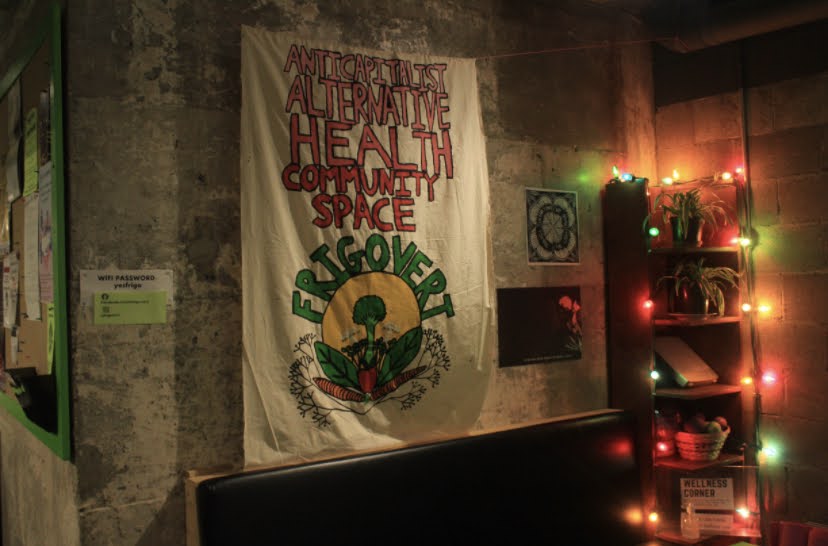Le Frigo Vert is back to offering students food, education and community
As the semester begins and students head back to campus for the first time in months, there is more to look forward to than just classes. Many student fee-levy groups are getting the opportunity to open their doors to new and old students for the first time since March 2020.
One such organization is Le Frigo Vert, an alternative health and community organization. Le Frigo Vert celebrated their grand reopening last week on Sept. 16, offering door prizes, free samosas, and kombucha.
Students were given the opportunity to check out some of the services Le Frigo Vert offers, of which there are many. They operate as a lounge and café, along with selling herbs and wellness products. One of Frigo’s most prominent resources is the pay-what-you-can food baskets, which give students and Frigo members access to affordable, healthy foods which are grown in a garden on the Loyola Campus.
Hunter Cubitt-Cooke, is a western clinical herbalist and a collective member at Le Frigo Vert, who has worked with the organization for six years. He says that over the pandemic the food baskets became even more essential.
“Obviously it’s harder to access food. Food prices have been going up and up. A lot of people just need access to healthy food, so we’re doing only the food baskets now, instead of more grocery items.”
Le Frigo Vert also hosts political debates and other information sessions, though they are currently on hold due to the pandemic. In addition to their food baskets, they offer pay-what you-can herbal medicines as well as natural menstrual products, free supplies for safer sex and drug use, and they have a kitchenette that is available to students.
Everything Le Frigo Vert does is centered around their mandate and constitution. The constitution focuses a lot on their values of anti-colonialism, anti-capitalism, and ecological sustainability and integrity — just to name a few.
Some of their goals are to be able to provide vegetarian nourishment to marginalized groups, while challenging corporate involvement in food production and distribution.
With the space being fully open, more students will be able to take advantage of the organization’s services, and join in the community.
“Today seeing the lounge filled up, that was great. People were meeting each other and discussing ideas and hearing about [new] things,” Cubitt-Cooke said. “That’s been a huge loss of the pandemic. People don’t care about other political struggles going on, they’re not meeting each other. So we’re excited for that to continue.”
It‘s safe to say that the organization does a lot of different things. It’s tough to pin the space down as just a café, or a shop. More than anything, it’s a community centre for students and members to make their own.
“[We want] more students to come to us and use the space as they see fit,” Cubitt-Cooke said. Students can rent the space after hours, for clubs or other gatherings.
Vikram Iyer is one of the students that came to check out Le Frigo Vert at the grand reopening for the first time.“I like these student cooperatives and initiatives, especially in social spaces,” Iyer said.
“It’s a pretty chill place. It’s a great place to have a conversation and meet like-minded people. […] A lot of cool hangout places have been closed down due to COVID and it’s great to see them open back up again.”
Students can find Le Frigo Vert and access all of the services they offer at 1440 Mackay St. Monday – Thursday from 12 p.m. – 4 p.m.
Photograph by Evan Lindsay
